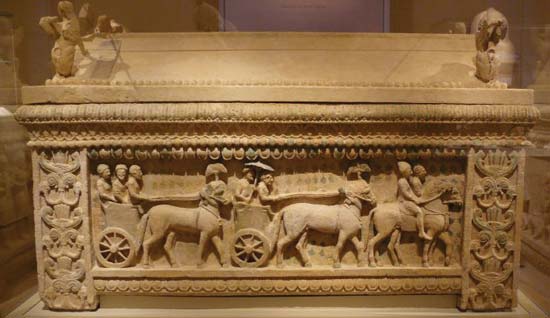Science News Roundup: Egypt discovers 27 sarcophagi more than 2,500 years old; Dutch 'living coffin' aims to provide source for life after death and more
Dutch 'living coffin' aims to provide source for life after death A Dutch start-up has created a biodegradable "living coffin" made of a fungus, instead of wood, which it says can convert a decomposing human body into key nutrients for plants.

Following is a summary of current science news briefs.
Dutch 'living coffin' aims to provide source for life after death
A Dutch start-up has created a biodegradable "living coffin" made of a fungus, instead of wood, which it says can convert a decomposing human body into key nutrients for plants. The company, Loop, says its casket is made of mycelium, the underground root structure of mushrooms, and filled with a bed of moss to stimulate decomposition.
Ig Nobel science award: An alligator on helium sounds like ...?
If humans sound like Minnie Mouse after inhaling helium, would an alligator squeak on the gas used to float balloons? This profound puzzle challenged a global research team to record an alligator bellowing with normal air, and then breathing heliox, a helium-oxygen mixture.
Egypt discovers 27 sarcophagi more than 2,500 years old
Archaeologists in Egypt have discovered 27 coffins at the ancient necropolis of Saqqara, a burial ground that is also home to one of the world's oldest pyramids, the ministry of tourism and antiquities said. The wooden sarcophagi are ornately painted and covered in hieroglyphs, and were found stacked in two burial shafts, the ministry said in a statement.
(With inputs from agencies.)










